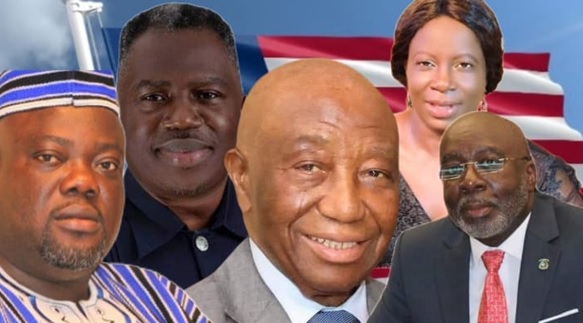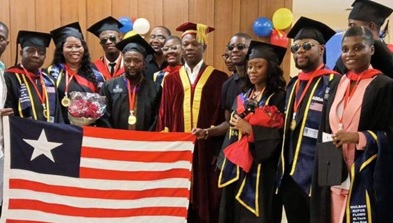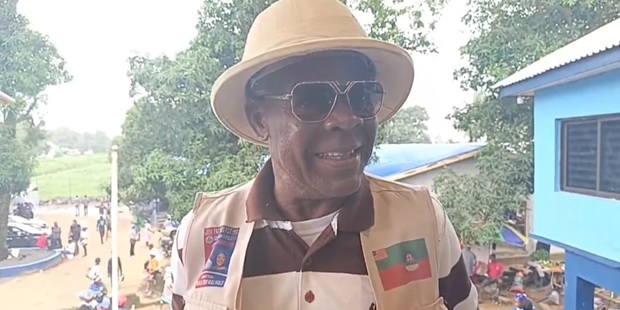Liberia’s ongoing struggle with poverty has been exacerbated by the actions of senior government officials who prioritize their own interests over those of ordinary citizens. Despite the trust and confidence placed in these officials by the electorate, their hopes are repeatedly dashed. Martin K. N. Kollie, a Liberian activist and economic development practitioner, has exposed the discrepancies in the national budget that favor top officials, including President Joseph Boakai, while the country’s populace continues to suffer.
In Kollie’s detailed write-up titled “The Big Five: The World’s 8th Poorest Country, Liberia, Is Spending US$11.14 Million On Just Five (5) Public Officials/Offices in 12 Months –– This Is Business As Usual – Edition 8,” he reveals that Liberia is spending over US$11 million on just five public officials/offices. This analysis, based on data from the 2024 Draft and Approved National Budgets of Liberia, underscores the significant resources allocated to high-ranking officials amid national hardship.
Kollie highlights the increased budgets for key government figures. President Joseph Boakai’s budget rose from US$2.46 million to US$2.99 million, a 17.85% increase. Vice President Jeremiah Koung’s budget increased from US$2.38 million to US$3.38 million, a 29.53% rise. Speaker J. Fonati Koffa’s budget went from US$1.67 million to US$1.91 million, marking a 12.50% increase. Senate Pro-Tempore Nyonblee Karnga-Lawrence’s budget grew from US$1.31 million to US$1.51 million, a 13.16% hike. Deputy Speaker Thomas P. Fallah’s budget surged from US$515,800 to US$1.32 million, a staggering 61% increase.
The cumulative budget for these five officials, referred to as “The Big Five,” rose from US$8.35 million to US$11.14 million, a 24.98% increment. The overall budget for the Legislature also saw an increase from US$38.3 million to US$53.3 million. Kollie emphasizes that while these figures are high amid Liberia’s poverty and unemployment, they are still lower than the previous government’s expenditures.
Kollie critiques this financial allocation, arguing that it reflects a disregard for the dire needs of the Liberian people. He points out that no additional funds were allocated for civil servants’ salaries and calls for a substantial cut in the budgets of high-ranking officials to invest more in essential sectors like health, education, security, and agriculture.
The implications of this budget allocation extend beyond the immediate financial strain on the country’s resources. It highlights a broader issue of governance where the needs of the few outweigh the needs of the many. This misalignment between government priorities and public welfare fosters a climate of disillusionment and mistrust among the electorate. Citizens who brave harsh conditions to vote for change feel increasingly betrayed when the elected officials fail to deliver on their promises of economic reform and development.
Moreover, the increased expenditure on the offices of the top officials signals a troubling trend of maintaining the status quo rather than implementing the radical changes necessary to uplift the nation. Kollie’s analysis serves as a wake-up call for the Liberian leadership to reassess their fiscal policies and focus on meaningful reforms that benefit the wider population. The stark contrast between the lavish budgets of the officials and the impoverished conditions of ordinary citizens is a glaring reminder of the disparities that continue to plague the nation.
The government’s decision to increase its budget despite previous promises to reduce expenditures is particularly disheartening. It raises questions about the transparency and accountability of the current administration. Kollie’s exposé not only sheds light on the current fiscal mismanagement but also calls for greater civic engagement and pressure on the government to adhere to its commitments. Transparency in budget allocations and public spending is crucial for building trust between the government and its citizens.
Ultimately, the path to economic development in Liberia requires a concerted effort to prioritize public welfare over individual gain. The government must take immediate steps to reduce unnecessary expenditures and channel those resources into sectors that can drive growth and improve living standards. By doing so, Liberia can move towards a more equitable society where the benefits of development are shared by all, rather than concentrated in the hands of a few.
Kollie’s recommendation for President Boakai to implement radical fiscal reforms is not just a suggestion but a necessity. The 2024 Approved Budget, as it stands, does not reflect a commitment to the promised “Rescue Mission.” For real change to occur, the government must demonstrate a willingness to make tough decisions and sacrifices. This includes cutting down on extravagant budgets for top officials and investing in the critical sectors that will drive Liberia’s growth and development.







